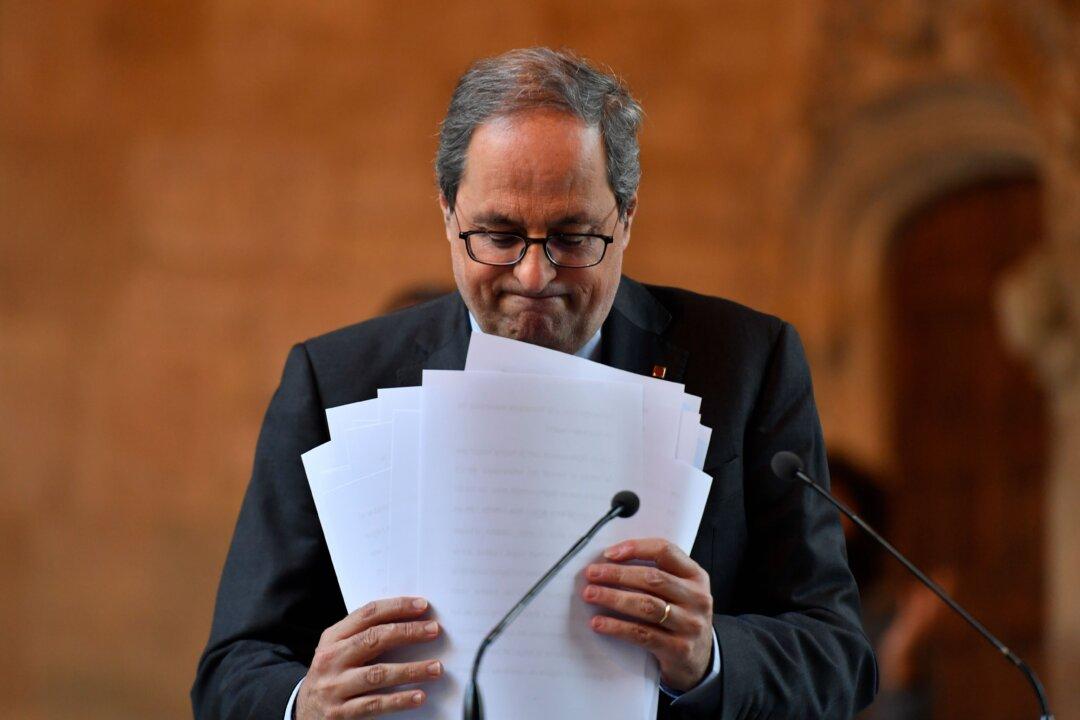MADRID—Catalonia’s outgoing regional president has called on voters to advance the cause of separatism from Spain after the country’s Supreme Court barred him from office for disobeying the country’s electoral law.
The top court’s ruling earlier on Sept. 28 upheld a previous decision to remove Quim Torra as the chief of the northeastern region for refusing to remove a banner that called for the release of imprisoned separatist leaders and was displayed on a public building before the 2019 general election.





